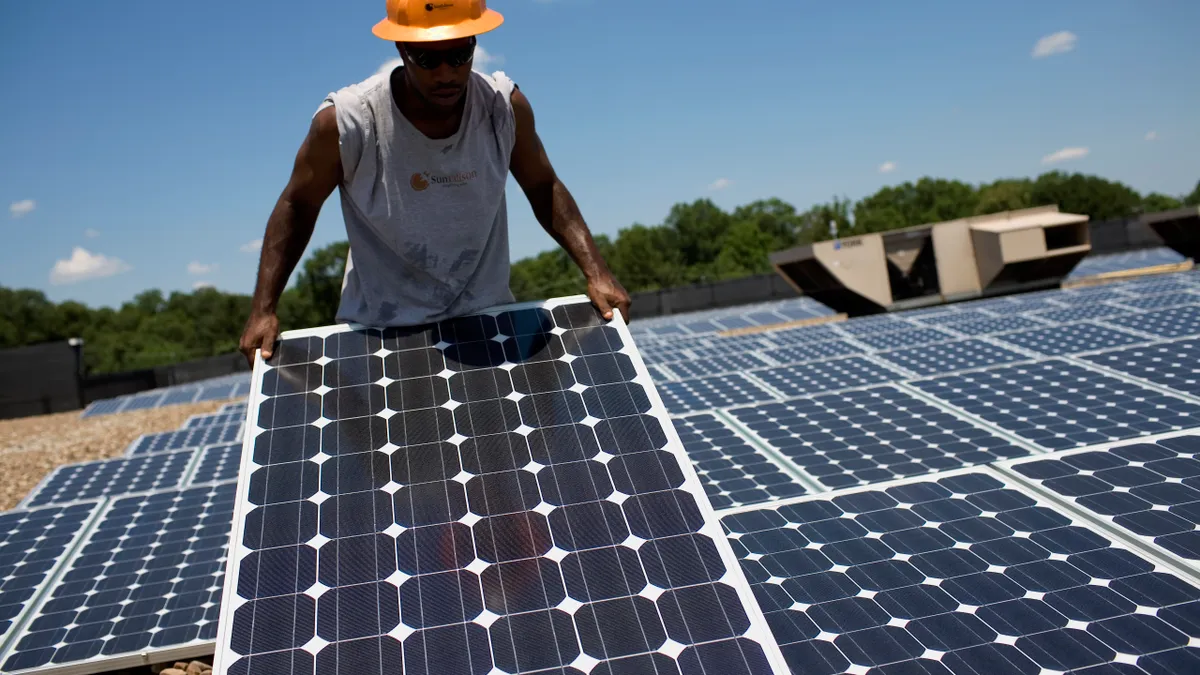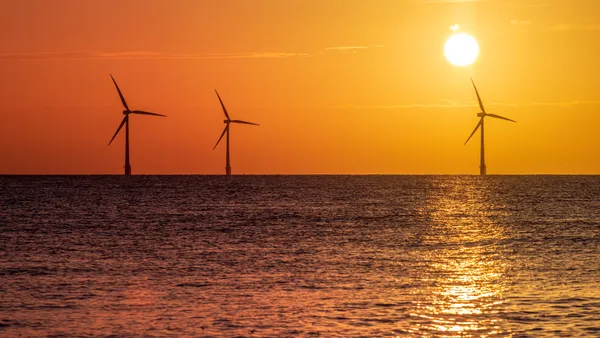Dive Brief:
- Massachusetts State House Speaker Robert DeLeo, D, announced on Friday a plan to spend $1 billion over the next decade to build up infrastructure around new cities and cut greenhouse gas emissions.
- The money would come from bond sales and focus on renewable energy, energy efficiency and climate change resiliency investments. DeLeo's staff confirmed that the plan has not been introduced as a bill at this time.
- DeLeo called on the state legislature to take up the measure this year, and require the state's Executive Office of Energy and Environmental Affairs to grant the $1 billion in funding to pay for solar power, energy storage and electric vehicle (EV) charging infrastructure.
Dive Insight:
The proposal is the latest in a series of climate change-driven initiatives pursued by Massachusetts' legislature and Republican Gov. Charlie Baker's administration.
The state has worked to increase renewable energy, including offshore wind, and other technologies such as energy storage and efficiency. DeLeo's proposed green funding seeks to push communities to consider ways to integrate renewable energy projects in every city, not just in coastal communities that are threatened by rising sea levels.
The plan would ease access of municipalities to money for the development of clean energy initiatives, including buildout of microgrids and EV charging.
Massachusetts became one of the first states to address climate change through a regulatory program after passing the 2008 Global Warming Solutions Act, which laid out goals to reduce GHG emissions 80% below 1990 levels by 2050.
The Baker administration announced on Feb. 11 $2.89 million worth of grants to fund renewable heating infrastructure projects. DeLeo's proposal could similarly contribute to the targets set by the climate change legislation.
Former Democratic Gov. Deval Patrick had proposed a 2008 initiative to spend $1 billion over a decade to jump-start investment in research through funding for life sciences and venture capital initiatives. The Associated Press likened DeLeo's proposal to Patrick's, noting the state and the greater Boston area as a hub of life sciences.















